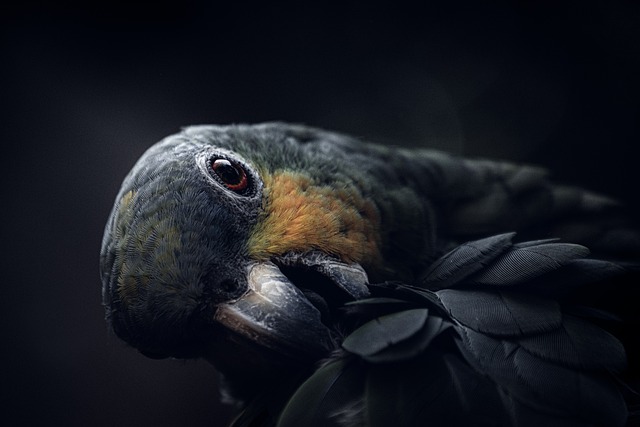This article aims to provide a comprehensive overview of safe foods for parrots, including a variety of fruits, vegetables, and whole grains that can be included in their diet. It also highlights the importance of avoiding certain foods that are toxic or harmful to parrots. By understanding what foods are safe and healthy for your feathered friend, you can help ensure they lead a long and happy life.
Parrot owners know that providing a balanced and nutritious diet is essential for their bird’s health and well-being. However, with so many options available, it can be overwhelming to determine which foods are safe for your parrot to eat. In this article, we’ll explore some key points related to safe foods for parrots, including the importance of fresh produce, whole grains, and limited treats.
One of the most important things to keep in mind when feeding your parrot is to provide a variety of fresh fruits and vegetables every day. These foods are rich in vitamins, minerals, and antioxidants that can help support your bird’s overall health and well-being. Some examples of safe fruits for parrots include apples, bananas, berries, citrus fruits, and melons.
Vegetables are also an essential part of a parrot’s diet, providing fiber, vitamins, and minerals that can help keep their digestive system healthy. Dark leafy greens like kale, spinach, and collard greens are particularly nutritious for parrots, as are carrots, sweet potatoes, and squash.
Whole grains are another important component of a parrot’s diet, providing complex carbohydrates and fiber that can help support digestive health. Brown rice, quinoa, oats, and barley are all safe options for parrots to eat.
When it comes to treats, it’s essential to remember that they should be limited and nutritious. Nuts and seeds are high in fat and calories, so they should be given sparingly. Sunflower seeds, pumpkin seeds, and millet are generally considered safe options, but avoid giving your parrot peanuts, almonds, or walnuts.
Avocado is also a popular treat for parrots, but it’s essential to remove the pit, skin, and leaves, as these can be toxic. Dark chocolate and caffeine are also toxic to parrots, so they should never be given as treats.
Avoid giving your parrot foods that are high in salt or sugar, such as candy, cookies, or processed snacks. These foods can lead to a range of health problems, including obesity, diabetes, and heart disease.
Some foods that are commonly believed to be safe for parrots but are actually toxic include milk, dairy products, and eggs. These foods can cause digestive upset and other health problems in birds, so it’s best to avoid them altogether.
The key to providing a healthy diet for your parrot is to offer a variety of whole, nutrient-rich foods every day. By avoiding processed snacks and treats, you can help ensure that your bird stays healthy and happy for years to come.
Here are some specific examples of safe foods for parrots:
- Fruits: apples, bananas, berries, citrus fruits, melons
- Vegetables: dark leafy greens (kale, spinach, collard greens), carrots, sweet potatoes, squash
- Whole grains: brown rice, quinoa, oats, barley
- Treats: sunflower seeds, pumpkin seeds, millet (limit to 10% of daily diet)
In addition to providing a balanced diet, there are several other ways you can help support your parrot’s health and well-being.
Provide fresh water at all times, and change it frequently to ensure it stays clean and free of bacteria.
Offer a variety of toys and activities to keep your bird stimulated and engaged. Rotate toys regularly to prevent boredom.
Create a safe and comfortable environment for your parrot by providing a spacious cage or aviary, plenty of perches, and a warm, draft-free area for sleeping.
Take your parrot to regular veterinary check-ups to ensure they stay healthy and receive any necessary vaccinations or treatments.
By following these tips and guidelines, you can help provide a safe and nutritious diet for your parrot, supporting their overall health and well-being for years to come.

